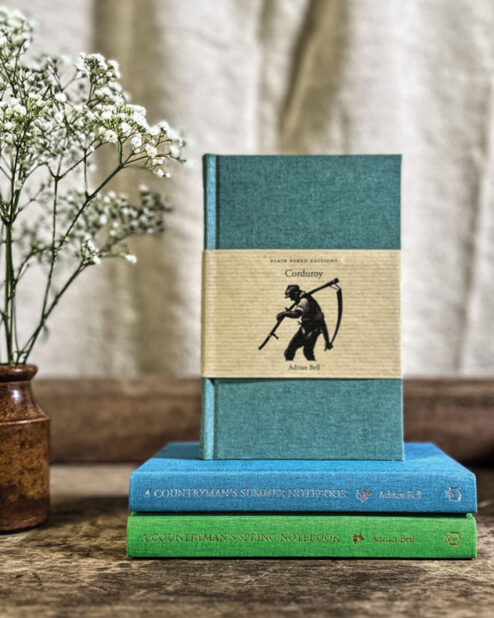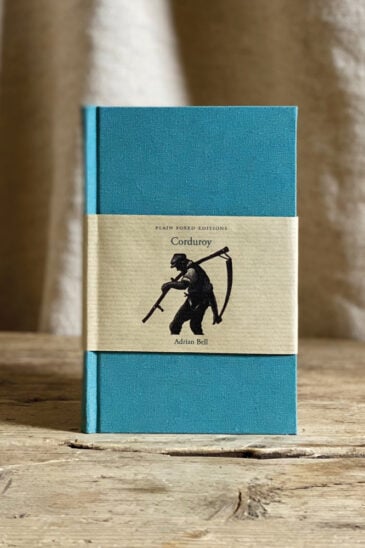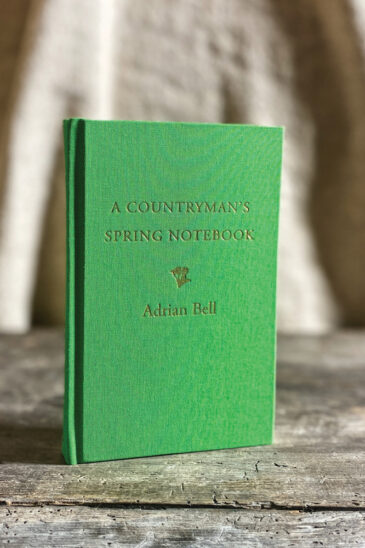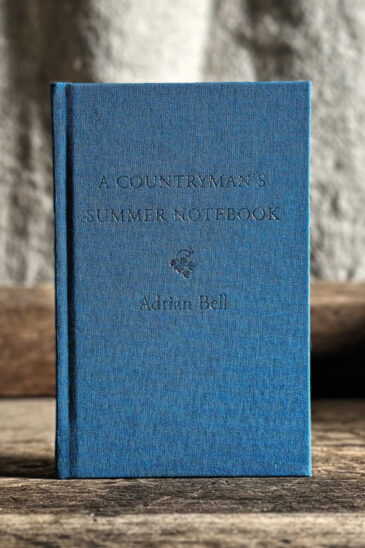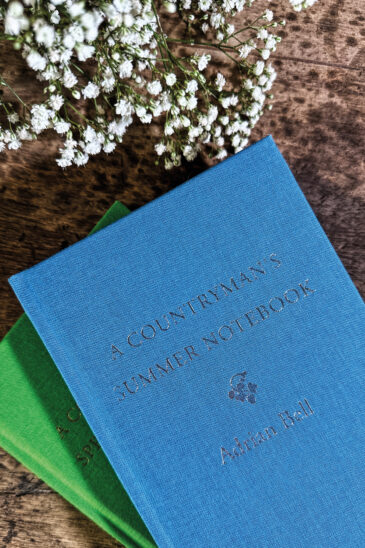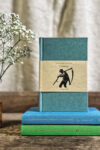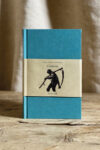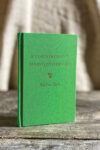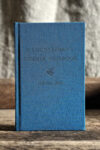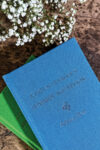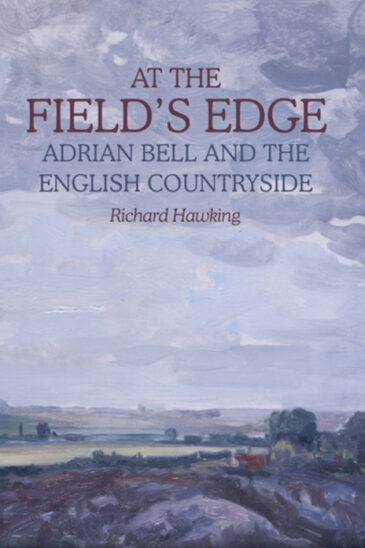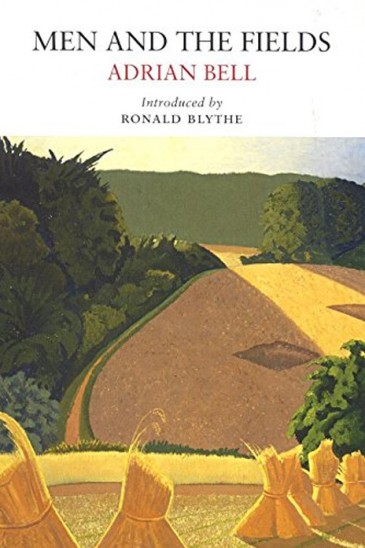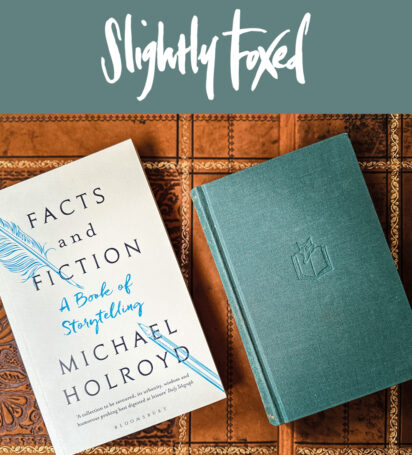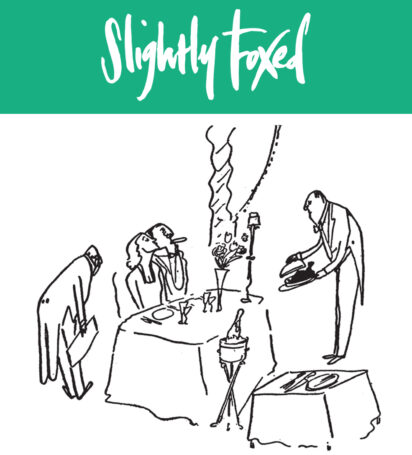‘Bell writes always of the ordinary things, of the seasons, of memories, of rain and laughter. Gentleness fits him naturally, just as the purity of his words opens our eyes to a life all around us which we might otherwise never have seen.’
So wrote the journalist Clement Court of his contemporary, the farmer-cum-writer Adrian Bell, best known for his rural trilogy, Corduroy, Silver Ley and The Cherry Tree, which vividly describe a time before machinery took over much of the work of men and beasts, altering the landscape and the face of farming forever.
Corduroy
Adrian Bell was a rather frail young man of 20 when, in 1920, he left London to learn agriculture on a Suffolk farm. He arrived one autumn day on an old motorbike feeling all wrong for the part. Like many townies, he assumed at first that the locals were somewhat simple, but soon his own ignorance and initial inability to do the most basic physical tasks taught him a new respect. A farmer, he discovered, stored away in his head thousands of facts about animals, crops and fodder, while his eye for a pig was ‘as subtle as an artist’s’. Bell’s eye was subtle too. He grew to love the land, and Corduroy is filled with precise and poetic descriptions of the countryside and of farming life. It is not simply a period piece – it captures what is unchanging about the lives of those who live from, rather than simply on, the land.
A Countryman’s Spring Notebook
A seasonal selection from the weekly column Bell wrote from 1950 to 1980 for the Eastern Daily Press catches beautifully the arrival of Spring in the East Anglian landscape he loved and knew so well. Each essay is a little masterpiece, a fleeting moment captured with a painterly eye and the down-to-earth observation of the farmer Bell became after he left his fashionable life in Chelsea shortly after the First World War. Read one every morning and it will set you up for the day.
A Countryman’s Summer Notebook
In this third volume of our seasonal quartet, Adrian Bell takes us into the summer countryside, to smell the may blossom in ‘hedges suddenly become cliffs of white’, to linger in quiet churches, wander through country towns, and hear the voices of the craftsmen and women, the farmers and farm labourers whose lives are rooted in the Suffolk soil. Joining him in his wanderings is a magical experience, as it must have been for the readers of the Eastern Daily Press, who followed Bell’s regular column between 1950 and 1980.‘Flowers and conversations are the best pleasures I know,’ Bell wrote. In these lovely evocations of summer in the Suffolk landscape, he gives us both, from his meeting with an old farmer whose words ‘were like something out of the Bible’ to the sight of daisies ‘glad as confetti in the long grass’.
A Countryman’s Winter Notebook | Winter Noon
This is December; everything proclaims it: that glimmering sun that can hardly climb the sky, the hawthorn hedges all red with berries, running from the red roofs in one village to the red roofs of...
Read moreA Countryman’s Notebook: Adrian Bell and the Loss of Rural Culture
Adrian Bell, most well-known for Corduroy and his ‘Rural Trilogy’, was a farmer-writer whose work reflects the changes in farming between 1920 and 1980. In the second half of his life,...
Read more‘What makes Corduroy such an enjoyable book is the way he writes about the experience.’
The majority of the book is Bell being introduced to a task, doing it badly, and getting better. What makes Corduroy such an enjoyable book is the way he writes about the experience. He is never...
Read moreAnother Country
Bell’s first book has the virtues which allow it to transcend its times: acute observation, sincerity and that simplicity of style which does not date. Published in 1930, it portrays a way of life...
Read moreHow long had I been standing here under the old cherry tree?
How long had I been standing here under the old cherry tree? Minutes or years? While the storm with its batteries of thunder deployed across the sky, letting fall but a few drops – for all its...
Read morePloughing On
The writer Adrian Bell first arrived in Suffolk in 1920 – a delicate young would-be poet, fresh from public school at Uppingham and the polite drawing-rooms of Chelsea, under pressure from his...
Read moreFrom the Farmhouse Window
The middle volume of Adrian Bell’s inter-war farming trilogy, Silver Ley (1931), is, in its quiet, unassuming way, the most poignant memoir I think I have ever read. Picking up where his first book...
Read more




